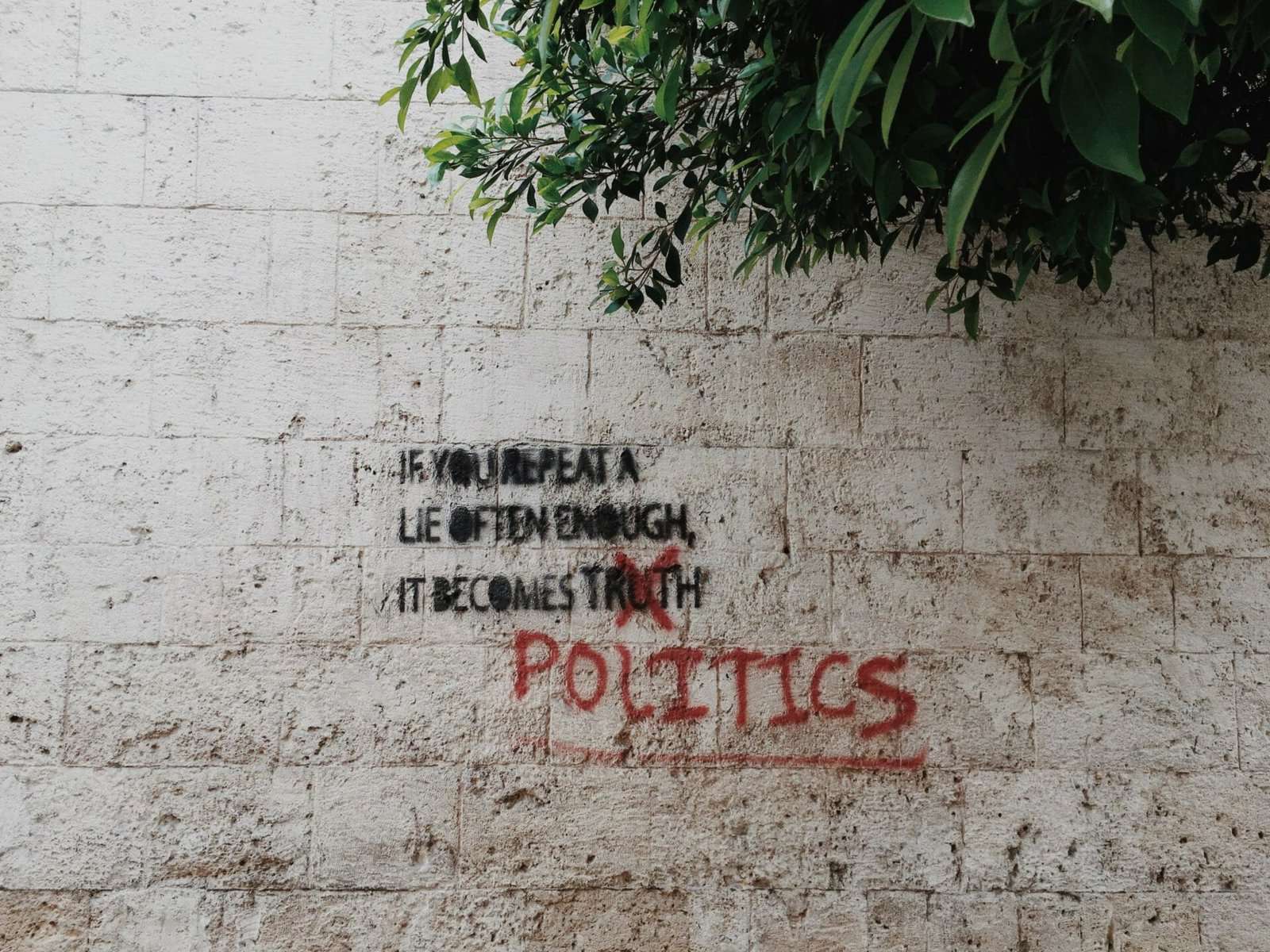| By James Carney, Gale Ambassador at King’s College London |
As a literature student, I have studied the power of language for myriad and varying purposes in a range of historical contexts. My studies have exposed me to the fact that language is inherently political – the way in which we construct verbal expression can reflect and compound the powerful forces that command us like hierarchies, social structures, identities or even biases. An example that comes to mind is the profound racism in the name given to South America’s most notable sea – the Caribbean. Popularised by the cartographer Thomas Jeffreys, the word finds roots in the Spanish word for cannibal (carib), and is a name which conquistadors enforced on the natives of this region. The political nature of language is clear from this example – in line with the constructed ‘civilising’ mission of imperialism, language came to reflect prevailing perceptions of the Spanish conquerors in relation to their (problematically) ‘savage’ subjects.
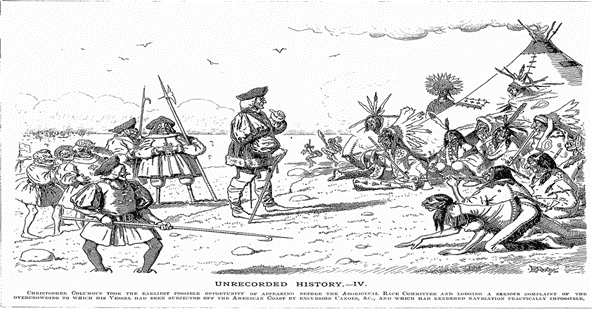
Freedom of Speech
At the same time, a politics of language exists which is far less fixed than language’s intrinsically political nature. This revolves around questions of access (who can use language) and purpose (why they use it). Freedom of speech is a central principle to this politics of language as it extends access to all, for all appropriate purposes. It is around this latter point that tensions have heightened in recent years, with the emergence of a “post-truth” philosophy threatening the idea of what is appropriate to disseminate politically. As politicians of the “post-truth” era like Donald Trump share fake news, the concept of free speech risks becoming meaningless because their conflation of fact and fiction eradicates the underlying principle of appropriate usage on which free speech depends.
What is meant by the “post-truth” era?
The 2017 article below by Melanie Phillips that I accessed using The Times Digital Archive illuminates how we reached this “post-truth” stage and what it means. Phillips argues that “post-truth” culture was ushered in by the doctrine of post-modernism, which has espoused essential theories in a range of academic disciplines through an emphasis on scepticism of social constructions. This has been particularly enlightening in the discourse of gender, for instance, where key scholars like Judith Butler have deconstructed gender to nothing more than a social (and colonial) performance, paving the way for greater inclusivity of non-conforming, intersex and trans individuals as well as an eradication of traditional, patriarchal roles.
The problem, however, is that the scepticism of socially constructed truths that postmodernism encourages has problematically extended to scepticism and denial of objective truths. Phillips describes the belief in “no such thing as objective truth” and in evidence being “a matter of opinion” as “post-truth” thought. This philosophy has become troublesome as “post-truth” practices like the propagation of ‘fake news’ and false history can aim to reconstruct the past (as seen with Holocaust deniers) and promise a future (like Donald Trump has done politically) based solely on lies.
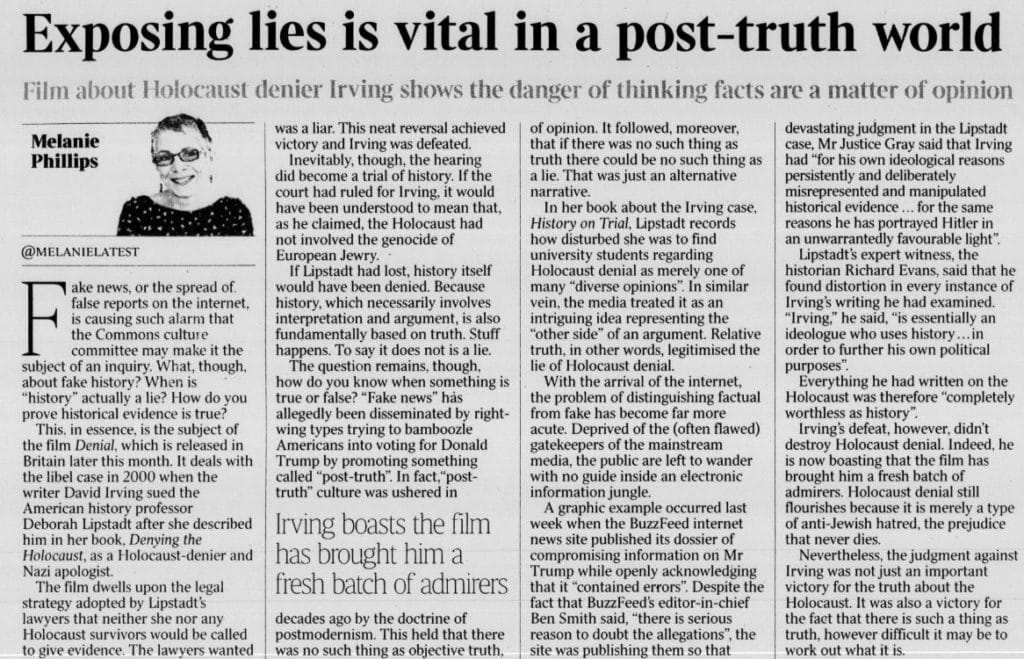
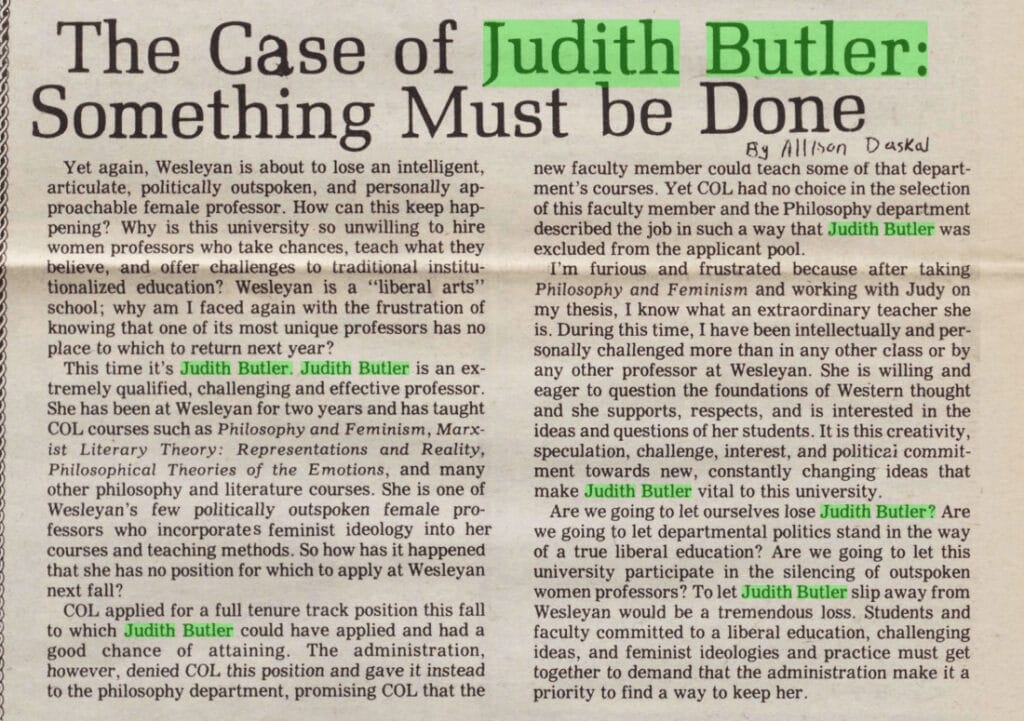
How does this threaten freedom of speech?
As discussed in the opening, a politics of language depends on access and purpose. The idea of freedom of speech extends access to all for appropriate purposes. The crucial term here is appropriate. And there are no circumstances under which “post-truth” era politicians and writers enforcing lies as facts can be appropriate, especially in a democracy where facts crucially illustrate the reality to which leaders are elected to respond. Democracy depends on freedom of speech to represent diverse opinions, not to deceive the populace with a varied integration of fact and fiction. That constitutes an inappropriate use of free speech.
Carol Midgey describes this abuse in a review of Ian Hislop’s documentary Fake News: A True Story, which is also available in The Times Digital Archive, and I further her criticism of “post-truth” opinion holding ‘as much weight as fact’ to the vulnerability of free speech. An equal weighting of fact and opinion poses a threat to the concept of free speech by contradicting its function for protecting diversity of opinion. When opinion is construed as fact, this diminishes the diversity of opinion that free speech movements uphold. Furthermore, differentiation between fact and fiction becomes laborious and difficult. If freedom of speech creates the possibility of meaningful, informed political discourse, then the “post-truth” world is made barren by the poison of falsities.
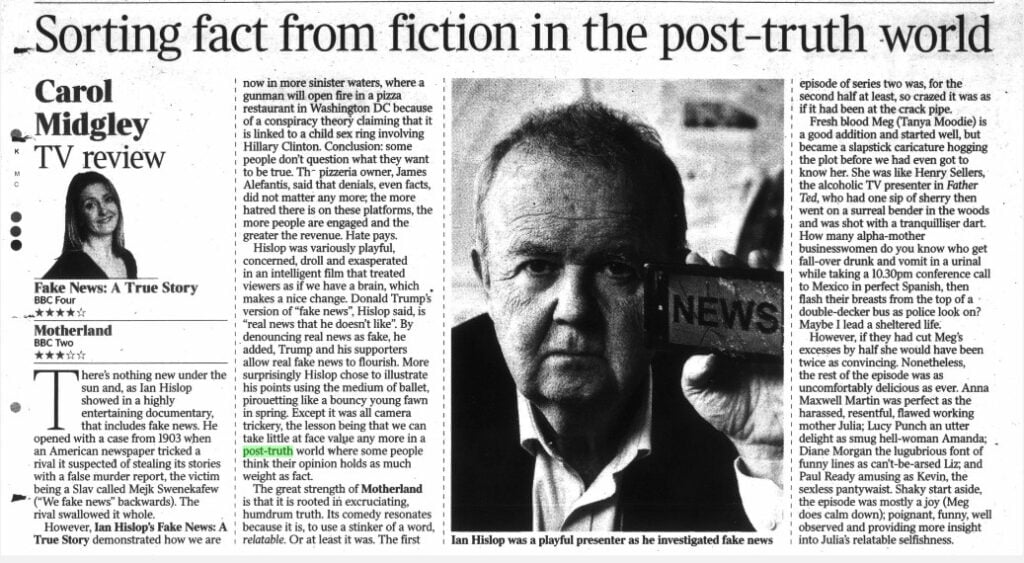
How, then, are digital archives valuable?
The Times Digital Archive provides a wealth of perspectives on the dilemmas of the “post-truth” world. I found Ben Macintyre’s 2016 piece “Who needs truth in a post-truth world?” particularly useful in this sense, specifically his description of troublesome “post-truth” thought which I argue connects to the value of digital archives as a defence against the proliferation of lies. Macintyre writes that between the blurred boundaries of fact and fiction in “post-truth” history, no event “just “happens”” and that the irrelevance of the truth gives way to “what others fear, or want to believe, took place.”
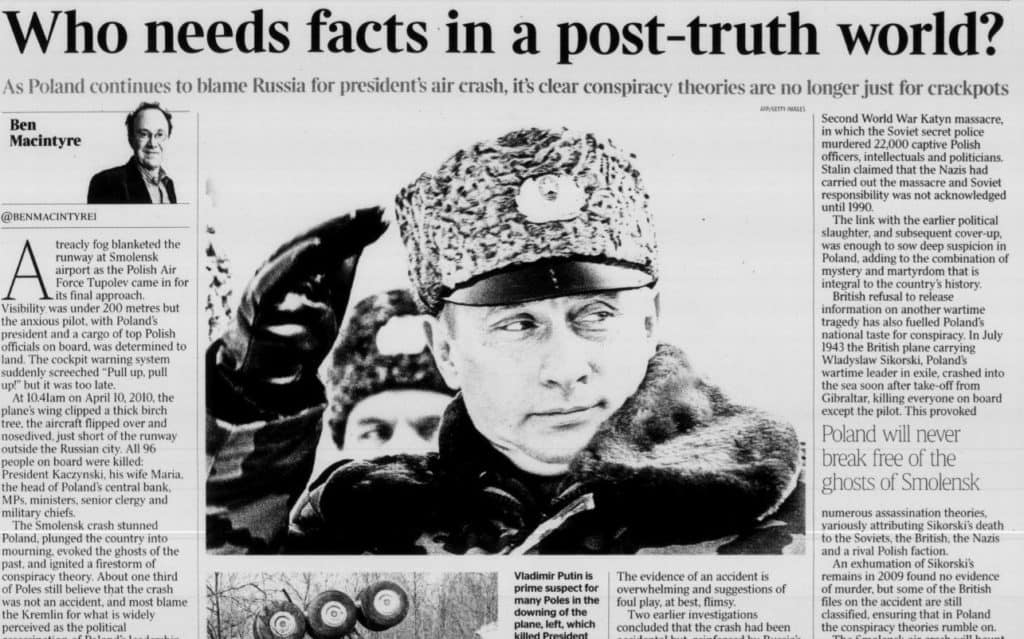
However, digital archives are direct evidence of not only what has happened, but equally what people in history thought of what happened. These collections of primary sources, made easily available through publishers like Gale, can provide a holistic perspective on historical events, from objective fact in academic articles to subjective takes on fact in newspapers and cartoons. So long as they are applied, we can never truly be “post-truth” because they enable us to live with the truth of history. Their evidence in report and in discussion is undeniable. (Unless you’re a conspiracy theorist who believes that writers of the past premeditated your anxieties of governmental indoctrination and constructed false evidence to bolster this effort!)
In this way, archives can be used to preserve free speech by emphasising the facts to culminate in the possibility of meaningful, informed discourse rather than a dialogue of lies that would characterise an inappropriate use of free speech. Archives restore the value to free speech that “post-truth” thought threatens, by grounding discussions and opinions in reality and challenging the fictions constructed by political charlatans so they cannot manipulate the populace into granting them power. In a political climate characterised by rampant lies, the vitality of digital archives is undeniable.
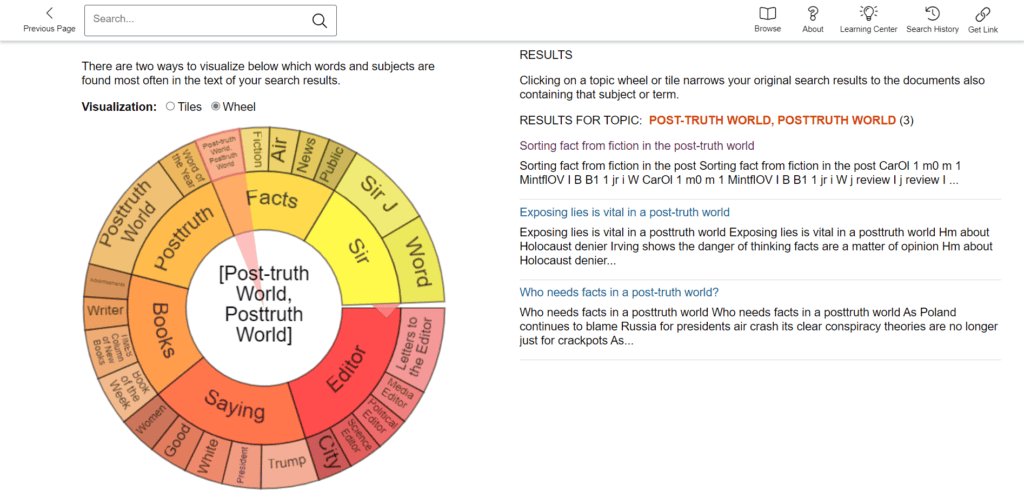
If you would like to read further on the value of digital archives, free speech and other similar topics, you might enjoy:
- Why Use Primary Sources?
- Disentangling Fact from Opinion in Academic Articles
- Can Digital Humanities teach us more about Political Extremism?
- Gale’s Political Extremism and Radicalism Archive: Why create it and why is it important now more than ever?
- Decolonising the Curriculum with Archives Unbound
Blog post cover image citation: Image by Brian Wertheim available on Unsplash.com

